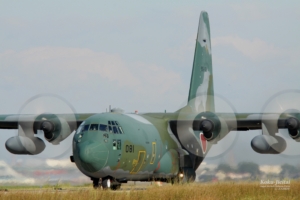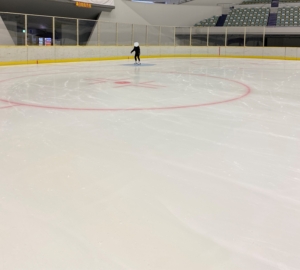Hello everyone.
I would like to talk about the stress and mental health care for rescuers in times of disaster.
Four Stresses of Rescuers
It is known that rescue workers are subjected to four major stresses.
Basic Stress: In the affected area, lifelines will be scarce, the environment will be poor, and there will be a lack of goods and environment to live in. People will be sleeping and eating in temporary tents or in places partitioned off with cloth. The stress of not being able to satisfy physiological needs, the lowest of Maslow’s five levels of needs, will be great.
Crisis Stress: Traumatic stress occurs when a person encounters a life-threatening or shocking event. Seeing near-death in front of one’s eyes, being unable to save a life because of inability to save it, aftershocks during rescue efforts in the midst of an earthquake, and decisions that must be made to triage can cause great stress.
Cumulative Stress: There are stresses that arise as you continue your lifesaving and volunteer work. The magnitude of the situation and unforeseen events come one after another. You feel guilty for not being able to help everyone, helpless, and saddened by the uncertainty of no end in sight. If it is a mandated mission, you find yourself in a dilemma of not being able to say that you are quitting. This causes stress.
Secondary Traumatic Stress: Stress is created by the situations that rescuers see and hear about in the disaster area. For example, witnessing the conditions of buildings devastated by earthquake, tsunami, and fire, the bodies of the dead, and people who are seriously ill; feeling guilty for not being able to do anything about it; and feeling helpless after hearing the experiences of survivors. These are the stressors.
Understand the stress response of rescuers
Not only victims, but also stressed rescuers will have the same physical, mental, and behavioral stress reactions.
Physical: Palpitations, shortness of breath, loss of appetite, sleep disturbances, fatigue, headache, lightheadedness, visual field narrowing, and paralysis.
Behavioral: escapist behavior, aggressive behavior, difficulty controlling emotions, overeating and anorexia, etc. Conflicting behaviors may occur.
Mental: feelings of helplessness, guilt, lack of concentration, lack of motivation, obsession with the task, and elation. There are conflicting emotions at different times, such as helplessness and exuberance.
Characteristic stress of rescuers
Looking at the physical, behavioral, and mental aspects above, we will notice that there are conflicting emotions and behaviors.
Relief workers enter the field with a great sense of responsibility and mission. At that time, emotions are running high, and if they continue their activities in such a state, they will be slow to notice changes in their own physical condition.
The sense of mission can lead to depression if one believes that they are the only one who can do it and they are not able to slow down and rest. A state of exhaustion may persist.
Burnout: When a person has exhausted all of his or her abilities and adaptations in a stressful situation, he or she becomes extremely exhausted. They may escape from the task at hand or become dependent on alcohol or drugs. A person who has always been constructive with others may sometimes take a harsh attitude toward colleagues or victims.
Unable to return to the source/affected person difficulty: As the affected person becomes more independent, the need for assistance diminishes, they are no longer grateful and feel a sense of self-denial. When the assignment ends, they may feel alienated and out of place, and may feel disappointed, angry, and frustrated.
Stress Management for Disaster Rescuer
We do not know what kind of disasters will happen or come in the future, but we may be involved as a rescuer or dispatcher.
We believe that if we understand that providing relief at that time will be stressful for us, it will lessen our stress reaction.
There are two types of stress management: self-management by the individual and support by a team or organization.
Here I would like to discuss stress management we can do for ourselves.
- Health checks.
- Accept and output your feelings (fearful and anxious thoughts).
- Consider the rescue activity as an opportunity for personal growth.
- Talk with the whole family about the rescue activity you are going to participate in and your feelings about it.
- Avoid doing things that are a burden to you. Avoid going over your limits.
- Take breaks as needed.
- Be open to your feelings and talk about your fears and frustrations.
- Stretch and do simple exercises.
- Breathe and relax your body.
- Praise yourself for your actions.
- Talk and communicate with others during the mission or activity.
- Acknowledge and share with your colleagues and peers.
- Value buddies. It is great to be among friends, helping each other, and recognizing each other.
We value our buddies. It is a great activity for buddies to help each other and recognize each other.
- Praise themselves for the completion of the activity, give a report on the activity, and create opportunities for others to hear about the experience they had.
- Think about what you learned and thought about through the experience, and how you can apply them to social contribution and the future.
- Thank family and friends who have been waiting anxiously and prayerfully for you while you were away, let them know that you have returned safely, and regain time to see and talk with them.
I think this is something that we can do.
When I backed on the time when I was active, I was so frantic that I could not think at the time. Instead of slowly thinking about my condition, I was overwhelmed by the reality in front of me and constantly wondered what I could do.
In any case, it means that I was desperate for what was in front of me.
After I finished my activities and returned to my daily routine, I went right back to work.
In between and in between, I took the time to reflect on what I had done.
I continued to talk to family, friends, and people. As I talked to people, I noticed more and more things.
Joining a community and sharing with like-minded people there has also been a great support.
I have also continued to write on blogs like this one.
I think such actions have helped me to organize in my own way. It has also helped me to gradually see what I need to do next.
I hope that these articles will be of some help to those who will be active in the future.
Thank you for reading to the end .






